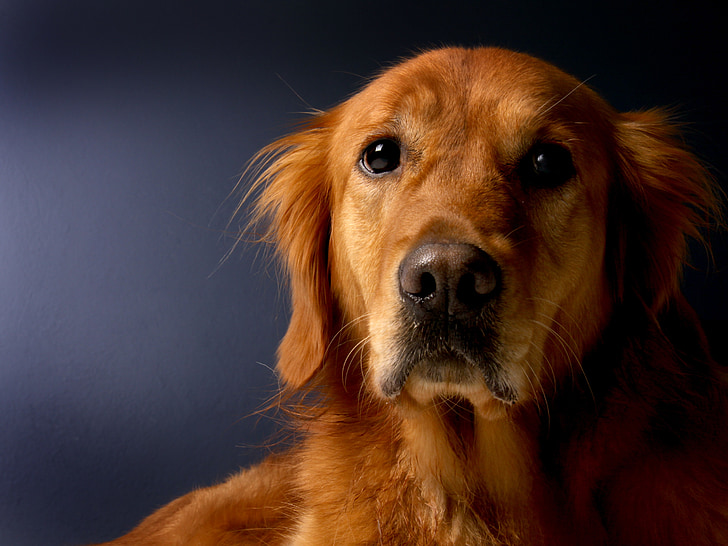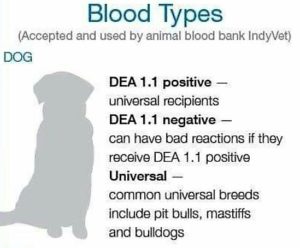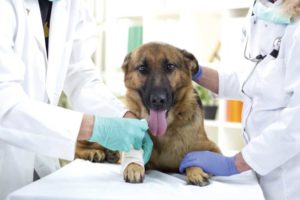
Are there blood groups in animals as well? Do dogs have different blood groups? The simple answer to these questions is “yes”. Unlike humans, dogs do not have the human ABO blood groups. Dogs have different blood types and these differences are inherited. There blood group system is based on DAE antigens. Like many other animals, dogs can need blood transfusion too. However, these transfusions are done on the basis of blood group proteins. Dogs are often regular blood donors. Dogs with a weight of 55 pounds or above are suitable to donate blood. Female dogs can donate blood before pregnancy because pregnancy can add different antibodies to their blood.
Importance of Blood Types:
Contents
The accurate grouping of blood is crucial because blood transfusion is done on the basis of blood type. If any patient receives a blood type that is not suitable, it can be fatal and lead to death in most of the cases. It is because the body of the patient starts producing antibodies against the antigens of the new antigen in the body. All of this causes reaction and rejection.
Blood Types in Dogs:
Dogs have more than 13 blood types. In order to determine an animal’s blood group, a small sample of blood is tested with certain antibodies. Dogs have more than eight antigens attached to their red blood cell which is denoted by Dog Erythrocytes Antigen (DEA). These below DAES can be divided into the following eight types:
- DAE 1.1
- DAE 1.2
- DAE 3
- DAE 4
- DAE 5
- DAE 7
- DAE 8
 Dogs that are DAE 1.1 positive can be considered as universal recipients; however, dogs that are DAE 1.1 negative such as greyhounds are considered as universal donors. Furthermore, dogs can be positive for either DAE 1.1 or DAE 1.2 or none. Simply, dogs cannot be positive for both: DAE 1.1 and DAE 1.2. There are certain immune responses in the process of a blood transfusion but the reactions to DAE 1.1 + are most severe of all. It is important to note that blood from DAE 1.1 positive dogs should never be transfused to DAE negative dogs because in the first transfusion step it will shorten the life of red blood cells and in the second attempt of blood transfusion it will lead to life-threatening complications in the recipient dog.
Dogs that are DAE 1.1 positive can be considered as universal recipients; however, dogs that are DAE 1.1 negative such as greyhounds are considered as universal donors. Furthermore, dogs can be positive for either DAE 1.1 or DAE 1.2 or none. Simply, dogs cannot be positive for both: DAE 1.1 and DAE 1.2. There are certain immune responses in the process of a blood transfusion but the reactions to DAE 1.1 + are most severe of all. It is important to note that blood from DAE 1.1 positive dogs should never be transfused to DAE negative dogs because in the first transfusion step it will shorten the life of red blood cells and in the second attempt of blood transfusion it will lead to life-threatening complications in the recipient dog.
Dogs with DAE 4 and no other antigen are considered as “universal” donors. DAE 4 antibody-antigen interaction does not affect the survival of red blood cells. Of all DAE’s, DAE 4 and DAE 6 is found on the red blood cells of 98% of dogs. Thus, they serve as a blood donor to the majority of the canine population.
The antibody-antigen interaction of DAE 3, 5, and 7 results in the permanent loss of red blood cells in 3 to 5 days. DAE 7 can be a factor in transfusion reactions, however, this cold agglutinin and a naturally occurring antibody is considered to have very little clinical significance. The rest of the DAE antigens can cause more clinical transfusion problems.
Dal is another blood type known in dogs other than DAE’s. This type of dog blood is comparatively rare.
Blood Bank and Dogs:

The first blood bank for pets was launched in Boston in 1989, with the cooperation of Angel Memorial Animal Hospital. Blood banks for pets are quite common now. One can receive blood for their dog from these blood banks. Moreover, one can register their pet dogs as a regular blood donor.
Properties of the Blood of the Dogs:
- In general, human blood and dog blood are quite similar, but there are certain differences in both.
- The blood of a dog has usually 4 to 8 percent greater chloride content than human blood.
- There is less bicarbonate in dog’s blood in comparison to humans.
- The lactic acid concentration at rest in the dogs is much more variable than that of humans.
- In the blood of dogs, red blood cells contain little potassium as compared to humans.
Quick Facts about Blood Types In Dogs
- Canine blood donors should be negative.
- Positive blood cannot be given to negative dogs twice.
- There are more than a dozen blood groups in dogs.
- The majority of blood donors in dogs are female. Their ratio is 56%.
- The most common type of blood type of dogs is DAE 1.1 (positive). The occurrence is 71%.
Frequently Asked Questions:
Why is there a blood test before transfusion?
As it has become that dogs have different blood types like many other animals as well as humans, then it is important to take care of these types while going for clinical transfusion. Otherwise, different blood types can lead to antibodies formation resulting in life-threatening situations.
Can we transfuse human blood to the dogs?
Human blood cannot be given to the dog and vice versa. The reason is the different structures and types of blood. However, certain proteins from the blood can be isolated and then used.
Can dogs donate blood?
Dogs can donate blood if they pass the following criteria:
- The dog should be adult and healthy.
- The dog is properly vaccinated and is not on any kind of medication such as for tick, flea, or heartworm.
- Good weight according to the size (usually 55 pounds and above is preferred).
- A dog can donate blood as much as 5 to 6 times a year.
Having information about blood types in dogs, in addition to knowing the blood type of your dog can save your dog. If there is an emergency, and you know about the blood type of your dogs it can save the life of your dog and the time of the vet. The dog can save other lives by donating blood to other unhealthy dogs. Make your pet a regular blood donor if possible, because saving the lives of other pet animals is a fulfilling experience.
Are dogs allergic to Tomatoes? Read Here